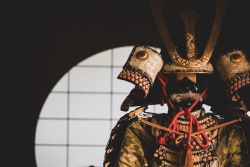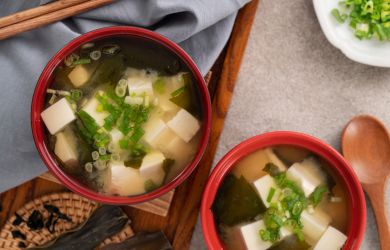
July 31, 2008
Gold Standard
As all eyes turn to Beijing, Japan’s Olympians Look to repeat their Athens Success
By Metropolis
Originally published on metropolis.co.jp on July 2008

FIVB PHOTO
China will get to host its first Olympics on August 8, when the Beijing Games officially kick off. The Communist country will no doubt be hoping it can escape unscathed for the two weeks of athletic competition. Certainly the lead-up to the Games has been anything but easy. Protests, demonstrations and death in Tibet have put China under pressure, while the Olympic torch relay—a pretentious waste of effort at the best of times—has been a PR nightmare. At home, the government has been accused of wiping out entire neighborhoods to facilitate Olympic construction, while a massive earthquake in Sichuan Province killed more than 30,000 people and paralyzed a large area of the country. On top of that, the pollution in Beijing is a serious concern to the athletes.
Whatever happens during the Games will reflect on the whole of China and may tarnish or enhance the country’s image for years to come. If we’re lucky, Jacques Rogge, the Belgian head of the International Olympic Committee, will once again be able to say these were “the best Olympic Games ever,” the traditional signoff for the IOC chief.
Japan sets off for Beijing with characteristically high expectations. The locals’ performance in Athens in 2004 was very good—the team earned 16 golds and 37 medals overall, even if it relied heavily on judo to pad the totals. The sad fact is that Japan underachieves when it comes to producing Olympic medals, although something usually crops up to surprise the armchair viewer and raise the spirit of the country. Here’s a quick rundown of what the TV cameras will be focusing on.
Let’s send for team Murofushi. Hammer thrower Koji and his discus-chucking sister Yuka will both be heading to Beijing.
Koji’s in with a medal chance; Yuka should enjoy the sights. Big brother initially finished second in Athens behind Hungary’s Adrian Annus, but when Annus’ blood samples drew suspicion and he refused a further test, the IOC stripped him of his gold and handed it to the Japanese star. Koji, who was once described on Hammerthrow.org, as “perhaps, the most outstanding technical thrower alive,” also finished first in the IAAF World Cup and the IAAF World Athletics Final two years ago, but injuries to his aging body (he’ll turn 34 this year) have slowed down his schedule and appearances.
He finished a disappointing sixth in last year’s World Championships in Osaka and didn’t make his first appearance this year until the Japan National Championships in Kawasaki at the end of June. However, he managed to return to action with a throw 2cm short of 81 meters, which sent him straight back onto the list of leading contenders. Ivan Tikhon of Belorussia will still be the man to beat.
Yuka has made progress in the discus and set a new national record of 58.62 meters a year ago—she also holds Japan’s hammer record. Even though this might elevate her to respectability, it is unlikely to put her in medal range. In fact, the likelihood of any other Japanese medal in track and field remains remote, but there are still points of interest out there.
Shingo Suetsugu, 28, who won bronze in the 200 meters at the World Championships in 2003, is on the team again despite a dip in form. He’ll be joined by fellow sprinters Naoki Tsukahara and 36-year-old Nobuharu Asahara, who will be competing in his fourth Olympiad. Dai Tamesue, who has twice won bronze medals in the 400 meter hurdles at the World Championships, is also on the team. Incidentally, Japan finished a very creditable fourth in both the men’s 4 x 100 and 4 x 400 relays in Athens.
On the women’s side, a lot of attention has been focused on Yuriko Kobayashi, who qualified for the 5,000 meters with a victory in the recent National Championships. More importantly, she’s young (19), cute and smiles a lot, so that should keep the Japanese media occupied. Also keeping them busy will be long-jumper Kumiko Ikeda and sprinter Chisato Fukushima, who both qualified for their first Olympics. Fukushima posted a time of 11.49 seconds to become Japan’s first female representative in the 100 meters for 56 years.
The TV cameras may actually be focusing on which runners don’t expire from carbon monoxide poisoning. While some athletes only have to perform for a few minutes, the marathon men and women have to run behind a bunch of trucks and motorbikes for over two hours. But what they’ll really be concerned about are the 10 million vehicles they can’t see as they fight through one of the world’s most polluted cities. To be fair, China has said it will execute anyone who drives a car in town on marathon day, but if there’s no breeze in Beijing, which will also be brutally hot, it could be a forbidding day in the Forbidden City.
All eyes, of course, will be on Mizuki Noguchi, who won the gold medal in Athens four years ago. But the intervening years have not been smooth sailing for the Olympic champion. She set a national record at the Berlin Marathon in October 2005, but then had to deal with injuries, including a damaged Achilles’ tendon, that upset her training for the best part of two years. Noguchi came back strong by storming to victory in the Tokyo Women’s International Marathon in November, recording the second-fastest time of the year.
World record holder and former world champion Paula Radcliffe has identified Noguchi as one of the favorites in Beijing, which is hardly a big surprise. The surprise may be that the other big favorite for the women’s title—Radcliffe herself—is struggling, having learned of a stress fracture in her femur just three months before the August 19 race. Radcliffe, who will also want to banish the memories of her pullout in Athens, says she’ll be fit, but at the moment it’s Noguchi’s race to lose.
Noguchi will be competing alongside her sempai, Reiko Tosa, who has a silver medal (2001) and bronze medal (2007) in World Championships and who finished fifth in the Athens Games. Japan’s third runner in the women’s event will be 21-year-old 2008 Nagoya Marathon winner Yurika Nakamura.
On the men’s side, Japan’s hopes will lie with Olympic debutants Tsuyoshi Ogata, Atsushi Sato and Satoshi Osaki. Ogata took the bronze medal at the 2005 World Championships and placed fifth at the Worlds in Osaka last year. His best time is 2:08:37, one second slower than Osaki’s. Sato, however, qualified with a personal best time of 2:07:13 in the Fukuoka Marathon.
Japan put on a very impressive show in the judo event at Athens, grabbing eight of 14 gold medals and a couple of silvers. Tadahiro Nomura made Olympic history by clinching his third straight 60kg crown, while Keiji Suzuki impressed in the heavyweight over-100kg class. Masato Uchishiba also picked up a gold medal in the 66kg event, but apart from that, the men were disappointing.
No matter, the women more than made up for it with Ryoko Tani (nee Tamura) nailing her second straight gold medal and Japan cleaning up in the four heaviest weight classes. Tani—now a 32-year-old mom—has scraped into the team despite a very poor showing in the qualifying tournament, but Nomura is history, failing to hold back the years in an attempt at a fourth gold. Suzuki lost in the qualifying for the over-100kg spot to Satoshi Ishii, but still made the team as the representative in the 100kg weight class. Athens gold medalists Uchishiba, Ayumi Tanimoto and Masae Ueno will also be back to defend their titles.
Japan may have won the inaugural World Baseball Classic a couple of years ago, but they’ve flopped in the Olympics. OK, so they’ve grabbed a few medals (two silvers and a bronze), but they haven’t won gold despite the absence of Major League talent in the Games. This year is their last chance, as the organizers of the 2012 Games in London don’t want anything to do with a sport that won’t send its best athletes to play (unless it’s soccer).
Cuba and the United States will be the main opposition, but Japan manager Senichi Hoshino should have enough firepower at his disposal to trouble any team. Yu Darvish will be the star of the squad, which will hold send-off games against an all-star lineup of Pacific League (August 8) and Central League players (August 9) at the Tokyo Dome. The Yakult Swallows have helped Japan’s quest by refusing to release South Korean pitcher Lim Chang Yong for the Olympics. Yakult claimed it couldn’t spare the Korean after pitcher Daniel Rios was sent home following a failed drug test.
Kosuke Kitajima will once again be a favorite for gold in the 100 meter and 200 meter breaststroke. Four years ago, Kitajima went into the Athens games under intense pressure. After cruising to two gold medals and two world records at the 2003 World Championships in Barcelona and becoming the first Japanese swimmer to break a world record in over 30 years, he saw both his marks shattered by American Brendan Hansen shortly before Athens. But Kitajima peaked at the perfect time and clinched a double gold.
In July, Hansen could finish only fourth in his US team’s 200m qualifying race, so in Beijing he’ll only contest the 100 breaststroke (although he’ll also be in the 400 medley). To rub salt in Hansen’s wounds, Kitajima broke the American’s world record in the 200 meter breaststroke at the Japan Open in June.
Ai Shibata, who took gold in the 800 meters freestyle in Athens, will be back, but has said she’ll retire after the Games. Athens bronze medalists Reiko Nakamura (200 meter backstroke) and Yuko Nakanishi (200 meter butterfly) were also named to the team.
While soccer may not belong in the Olympics (like tennis), it does attract the fans—which is the only reason it’s there. Soccer doesn’t need the Games and, like tennis, the Olympics are not the ultimate test for the athletes involved. On the men’s side, teams are restricted to competitors under 23 years of age, plus three overage players. Although Japan will stick to an under-23 lineup, team members such as Atsuto Uchida, Michihiro Yasuda, Keisuke Honda, Yuta Nagatomo and Shinji Kagawa have already played for the national squad. Unfortunately, that doesn’t mean they’re any good. The women probably stand a better chance of getting a medal, having improved considerably since Athens, where they reached the quarterfinals.
Ai Sugiyama, known for her perseverance rather than her talent, will return to Olympic action along with Ayumi Morita. Sugiyama, 32, is ranked 38th in singles and third in doubles. She reached the quarterfinals of the women’s singles in Athens and finished fourth in the doubles with Shinobu Asagoe. On the men’s side, teenager Kei Nishikori won an ATP Tour event earlier in the year and has—like Morita—been given a wild card entry to the Olympics.
Table Tennis
All eyes will once again be on Ai Fukuhara, who does have the talent to upset some of the world’s best, but probably won’t get near a medal. She is fluent in Chinese, though, so she’ll be at ease in China. Japan may get more out of teammate Sayaka Hirano if she’s just as comfortable in Beijing.
Wrestling
Japan picked up two golds, a silver and a bronze when women’s wrestling made its debut in Athens. While Kyoko Hamaguchi gained all the attention (and ended up with a bronze), Saori Yoshida cruised to gold and will be favorite again in the 55kg class, despite her first competition loss in seven years in the World Cup last year. The other gold medalist, Kaori Icho, will again be joined by her sister Chiharu, who earned a silver. The men won two bronzes in Athens.
Volleyball
Both the men’s and women’s teams are extremely popular in Japan, but only the women were expected to qualify for the Olympics. In fact, the Japanese men performed brilliantly in the qualifying tournament (admittedly at home) and will be joining the women in Beijing. Both teams can compete at the highest level, but it is unlikely that either will reach the medal stand.
Gymnastics
Japan’s long-awaited return to form in gymnastics continues—at least for the men. When the squad won team gold in Athens, it was Japan’s first Olympics gymnastics triumph in 20 years. Hisashi Mizutori and former world champion Hiroyuki Tomita are the best bets for individual gold. Japan finished second to China in the 2007 team event at the World Championships.
Trampoline
Tetsuya Sotomura and Yasuhiro Ueyama are the current world champions in the synchronized trampoline event, but they’ll have to compete individually in Beijing, as the Olympics are single competition only. Sotomura is the son of Koji Sotomura, who won a bronze medal in gymnastics at the Los Angeles Olympics.
Equestrian
Spare a thought for Hiroshi Hoketsu, who will appear in the equestrian event at the age of 67, making him Japan’s oldest ever Olympian. He last appeared at the Olympics in Tokyo in 1964.







